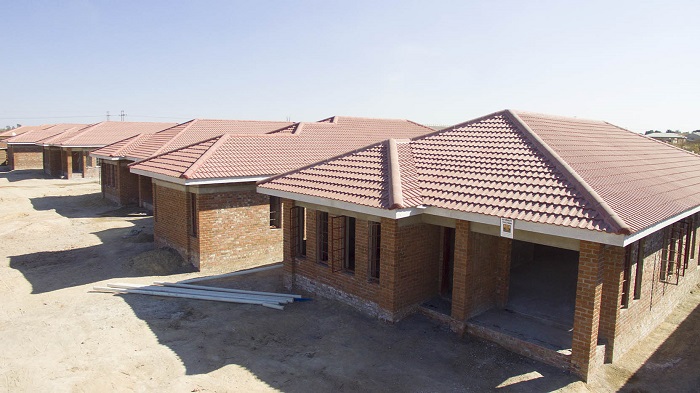By Derick Tsimba
To alleviate the National accommodation challenges, the 34th Cabinet Briefing has approved to re-capitalise the National Housing Fund, the Housing Guarantee Fund portfolios and to institute forthwith a moratorium on the disposal of Government Pool properties.
In its briefing the Cabinet said, “Suitable land will be availed across the country for the engagement of building brigades in the construction of Government pool houses in line with a comprehensive national housing provision programme whose chief aim is to empower citizens and civil servants, including those in rural areas.”
Cabinet also said vertical construction of houses was going to be adopted to utilise land optimally and that the general demand for housing units stands at 2 million across the country.
“Henceforth, the vertical construction and densification model will be adopted in housing provision in order to optimally utilise land and provide amenities efficiently and at manageable costs. In line with the Second Republic’s thrust of private sector-driven development, the private sector, pension funds, banks will be facilitated to partner with other sources of funding in order to avail resources for housing construction.
Auser-friendly mortgage system will be designed for the purpose of easing the burden of home-ownership for various categories of citizens.
“Cabinet noted that in terms of statistics available, the general demand for housing in Zimbabwe stands at 2 million housing units. The effective demand for housing from local authorities’ waiting lists stands at 1.5 million units, inclusive of civil servants’ requirements. Cabinet also noted that in the late 1980s, Government disposed of 75% of its existing pool properties to sitting tenants as an empowerment initiative. There was, however, no corresponding and equitable replacement of the properties so disposed of, hence the current housing deficiency, which affects ordinary civil servants as well as the security services sector,” said the Cabinet.
Harare Post can report, Cabinet noted that the Devolution Programme has created structures at provincial levels that require provision of additional accommodation for personnel.
Furthermore, the inevitable staff movements through transfers and staff promotions have compounded the accommodation challenges across provinces vis-à-vis limited investments in the sector.




